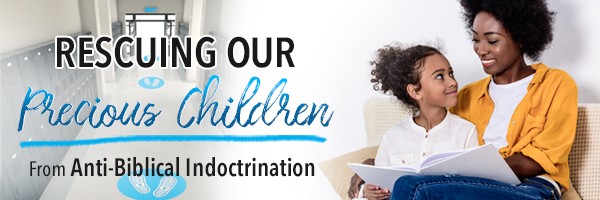Silver Lining: COVID Boosted Idea of Educational Freedom
As Mao Zedong took over China with his communist revolutionaries, he sparked one of the largest mass migrations of the 20th century. Between 1948 and 1950, an estimated 2 million Chinese refugees fled Mao’s regime and escaped to Taiwan and other countries around the world. While Mao was razing and restructuring Chinese culture and society, these refugees were able to begin new lives in safer and freer countries.
While the Chinese mass migration makes the history books, a similar 2-million-in-2-years migration is currently happening—across educational borders. An analysis published by Harvard’s Education Next Institute (EN) recently announced that, between the spring of 2020 and the spring of 2022, “Our polling data indicate that district-operated schools lost 4% of student enrollments to other types of schooling between 2020 and 2022.” EN went on to say, “If that percentage is accurate, it means that nearly 2 million students have shifted from traditional public schools to alternative school arrangements.”
Individual examples of the recent dramatic shift in educational choices are not hard to find. While New York City (NYC) public schools have been steadily losing students over the past five years, they lost 10 percent of their remaining students during the COVID-19 epidemic alone. Those children are not expected to return, and the NYC public school system is now at a 15-year enrollment low. California’s state school system is at a 20-year enrollment low; over 270,000 students have left since COVID. Los Angeles alone lost more than 10 percent of students. The Chicago government school system is projected to have lost 100,000 students—more than 25 percent of total enrollment—by the end of the ten-year period between 2015 and 2025.
And states such as Michigan, Rhode Island, and Minnesota have all experienced drops in enrollment, continuing even after the initial COVID-19 year. Now, EN does caution that “the overall picture shows less change than media reports portray,” and that these trends do not constitute a “mass exodus,” but the statistics are nonetheless remarkably significant.
Harsh lockdown policies and virus mitigation measures have surely been significant in shifting the nation’s educational choices. According to Education Next’s analysis:
“In November 2020, Education Next polling data revealed widespread parental worries about the learning loss, social isolation, emotional distress, and physical inactivity induced by school closures, online learning programs, and other measures designed to prevent Covid spread.”
However, the presence of COVID-19 lockdown policies can’t be the only factor; EN also points out that when pandemic measures were relaxed, their polls showed a notable improvement in parent satisfaction. “By spring 2022 … parental distress had subsided.” Yet enrollments continue to decline. Something else must be up.
As the Foundation for Economic Education (FEE) suggests, what started as “pandemic pods” during the thick of the crisis eventually became co-ops and “microschools,” which many families have found to work better for them than government schools. Catholic schools and private schools were more likely to remain open during the pandemic and thus received an influx of students. In short, FEE assesses, “Parents are recognizing that they have many more options for their children’s education and are continuing to abandon government-assigned district schools.”
This change is notably visible in EN’s data. Contrary to their government schools over the same two-year period, private schools (8 to 10 percent), charter schools (5 to 7 percent) and homeschooling (6 to 7 percent) all boasted shares of enrollment greater than when the pandemic started. And the enrollment numbers match the parental polls:
“Parents expressed higher levels of satisfaction with their child’s school if their student was attending a private or charter school rather than a district school.”
This change in the nation’s educational landscape has provoked a range of reactions from the nation’s leaders—on the one hand, no fewer than 18 new states over the past two years have passed laws broadening education choice. However, not all government officials have been as friendly to the widening school choice trend; the U.S. Department of Education recently considered instituting new hurdles for charter schools to receive government funds, inciting bipartisan protest and raising the hue and cry of even powerful liberal advocate Michael Bloomberg. Government reactions to parental choices will likely continue to unfold along one or the other of those two lines, and for Christians, who are commanded to pray for our leaders (1 Timothy 2:1-2), this is both a timely and an important area to focus on.
In a plummeting culture such as ours, educational choice is becoming increasingly imperative. Former governor of Virginia Terry McAuliffe, a Democrat, inadvertently expressed one reason why: “I don’t think parents should be telling schools what they should teach.” This is a stark departure from the biblical model of education, in which parents are responsible for teaching their children (Deuteronomy 6:7, Ephesians 6:4). Schools help parents accomplish that goal; parents don’t abdicate their responsibility to the school system, and neither should that responsibility be divested from them by force of law.
When parents decide that their child would be better served by a private school, charter school, homeschooling, or online learning, it should not be the authority of the school district, local, state or federal governments to tell them otherwise. Doing so flips the biblical model on its head, and comments such as McAuliffe’s are foundationally wicked, because they imply that schools, not parents, are the ultimate authority over the education of children.
Education freedom should be championed in every state in the Union. Make no mistake about it, parents who want their children to attend government schools should be able to do so. However, the rising migration across educational borders—only accelerated by the the pandemic—also means “we, the people,” must work to reduce all barriers to education choices so that parents, not the government, are enabled to make the best decisions possible about their children’s development. This should be a consideration in picking candidates to vote for in this upcoming election, and in every future election we participate in.

